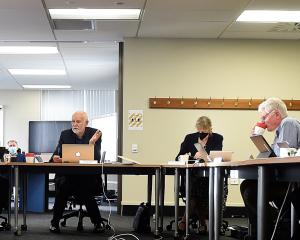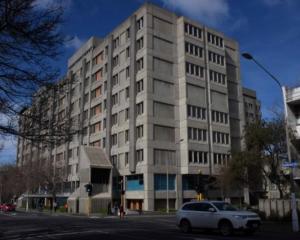If it did not consider there was fraud, it should reach an agreement with South Link on ''future actions'', the office advised the board in late October.
In its response to Audit NZ, board management agreed the issue should be resolved in ''a timely manner''.
In February, the board engaged a forensic accountant in connection with the dispute.
The report on the board audit, dated October 31, was released a week ago by the board under the Official Information Act, following a request on February 18.
On February 19, board chairman Joe Butterfield, under questioning at Parliament's health select committee, revealed the board had been told in 2010 the dispute might involve fraud, but the dispute was not referred to police.
Board executive director of communications Steve Addison said last week the board would not comment about the progress of the forensic accountant's investigation ''while negotiations continue''. In March, the board and South Link confirmed they were in discussions.
South Link insists it spent the money in dispute on approved programmes and has no case to answer, either commercially or criminally.
In the report to the board management, sent on October 31, audit director Andy Burns said the board had brought the dispute to auditors' attention ''which indicates a less than robust approach to the DHB's management of an issue over an extended period of time''.
The parties had been in mediation on two occasions in 2009 and 2010, the report said, and it appeared no progress had been made since that time.
The report said it was not clear what role the Ministry of Health had played in this process, and the extent of investigation carried out by its Audit and Compliance Unit (to which the matter was referred in late 2010).
''We have seen a minute that Audit and Compliance be asked to investigate, but no evidence at this stage that the contact was subsequently made or that action was taken.''
The report said the dispute involved whether savings South Link made on DHB funded services had been spent by South Link ''and if they have, whether the areas of spend were jointly agreed''.
The then Otago DHB and South Link had agreed that savings of $6.2 million were paid to South Link by the South Island DHBs between 1995-96 and 2002-03 financial years.
This was not in dispute. The DHB acknowledged agreement was reached on spending of $923,825, but disputed any further spending was approved and also questioned whether the money was still held by South Link.
The auditors said they had not been provided with documentation to indicate that either party had evidence to substantiate what was, and was not, agreed at the time.
The board advised while there was a hiatus in the dispute following the change of chief executive, the board had regularly discussed the matter and follow-up meetings with South Link had been held, and options for resolution proposed.
The auditors said their observations were based on the limited information available to them.
Questioned about the reason for the board's delay in releasing the audit report, which was not formally explained by the board, although it was 18 days over the 20 days maximum allowed under the Official Information Act, Mr Addison, who is responsible for co-ordinating OIA responses, said it appeared it was not logged as an OIA request, but sent on to determine whether the document sought existed.
In part of her response to a call to investigate what had happened with this request, chief executive Carole Heatly apologised and advised she was reorganising the way OIA requests were handled.
In her view, the importance placed on OIAs had not been high enough, and, as part of a reorganisation of her office and administrative functions, she would be returning dealing with requests to the chief executive office.
''That way I'll be sure of a timely response from the organisation and an elevation in how important being open and transparent with the public is.''
Ms Heatly said a change proposal would go out to staff soon. In the meantime, she was satisfied with the way in which the communications department was managing OIAs.
The department co-ordinated the process but the responses came from throughout the organisation and the department was reliant on timely co-operation.
Mr Addison had suggested the co-ordination of OIAs sit within her office and the half-time worker managing OIAs would transfer to her office.











